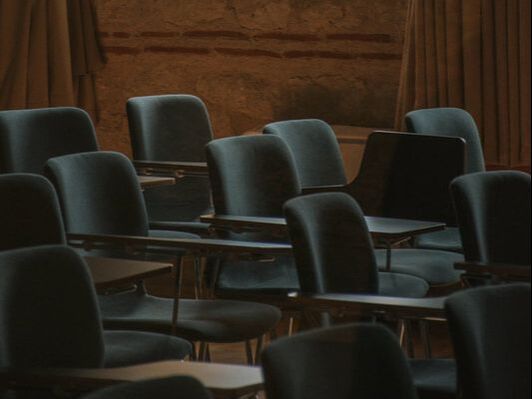|
In 1990 I was in Budapest, Hungary, where I’d been invited to give a talk and workshop at an international conference on innovative teaching methods. As people milled around, registering, speaking in a variety of languages along with heavily accented English, I felt lost among the crowd—mostly men in dark suits with fancy briefcases. I was wearing a long pastel colored skirt and a white blouse with dangling earrings, carrying an embroidered cloth bag. While waiting in line, I picked up a conference program and searched for information about my presentation, legitimizing my presence. I overheard a group of men behind me talking about the presenters, not paying much attention until I heard my name and then the title of my paper and workshop, “Imagemaking and Storymaking: Techniques to Develop Imagination, Creativity, and Communication,” with such disdain I felt like letting them know they were talking about me. I chose to pretend I hadn’t heard. After registering, I looked at them, middle-aged males, making fun of anything that differed from their way of teaching, even though this was a conference about innovation. I was sure they would never sign up for either my talk or workshop. I hoped some people would. I went to check out the room I’d been assigned and discovered it was much larger than I’d anticipated. There was no podium, no speaker system, and no way to see most of the people who’d be sitting in chairs on a flat floor. I left the room, looking for the conference coordinator. No matter who I asked, no matter where I looked, I couldn’t find him, or anyone who might be available and able to help. There was nothing I could do to change the room. Nothing I could do about the poor visibility and acoustics. When it was time for my talk I went to the room, hoping something had miraculously changed. It hadn’t. I watched people walk in, talking in a mixture of languages, holding briefcases and the conference agenda, occasionally looking at me, but more interested in finding seats with friends. Much to my astonishment, the men I’d heard dismissing my work, entered the room and found seats in the front. These were the faces I’d see most easily. Why had they come? I’m always nervous before a talk. Giving one in a foreign country, speaking in what would be a foreign language for most, in a room not set up for a talk, made me so anxious I dropped my paper, pages streaming down on the floor. Two of the men helped me gather up the pages. If they remembered talking about me, they gave no sign. I thanked them, grateful for their help, hoping their presence meant they’d at least be willing to hear what I had to say without disparagement. I started my talk by welcoming everyone but was soon greeted with shouts of, “We can’t hear you.” “We can’t see you.” No way could I continue, but how could I change the situation? I looked around. In the corner was a large desk. I started pulling it into the middle of the front but it was heavy. The two men who’d helped me gather the pages once more came to my rescue. As they pushed, I pulled and guided. The three of us moved it to where a podium ought to have been. The desk was made of polished wood. No way could I stand on it in my shoes. There was nothing to be done but to take off my shoes, and since the surface was glossy, I took off my stockings so I wouldn’t slip. Any thoughts of dignity disappeared. I comforted myself—the conference was about innovation—I was innovating. Sort of. As soon as I climbed up on to the top of the desk, paper in hand, shoeless and stockingless, ready to begin. Laughter greeted me. Waves of laughter. The situation was ridiculous but what else could I have done? When the laughter died down, I asked if they could see me. “Yes.” Could they hear me. “Yes.” A man close to the front stood up and yelled, “All hail the barefoot professor.” The group stood up and echoed his words. I grinned, suddenly at ease with myself and what I had come to share. I gave my talk, ending with a story. People clapped. Even the men in front had smiles on their faces. A happy ending to a difficult beginning. Have you experienced a time when you had to make do? What was that like?
2 Comments
Marlene Simon
1/11/2024 08:38:31 pm
A word that comes to mind when ready Nancy's stories is bravery and the ability to innovate on the spot. I love how disasters become triumphs. It is always so very inspiring.
Reply
Leave a Reply. |
Monthly StoriesStories inspired by world tales to challenge and comfort. Archives
July 2024
Categories |
Copyright © Nancy King 2020 | Site Design by Angulo Marketing & Design
|
|
Nancy King is a widely published author and a professor emerita at the University of Delaware, where she has taught theater, drama, playwriting, creative writing, and multidisciplinary studies with an emphasis on world literature. She has published seven previous works of nonfiction and five novels. Her new memoir, Breaking the Silence, explores the power of stories in healing from trauma and abuse. Her career has emphasized the use of her own experience in being silenced to encourage students to find their voices and to express their thoughts, feelings, and experiences with authenticity, as a way to add meaning to their lives.
|


 RSS Feed
RSS Feed